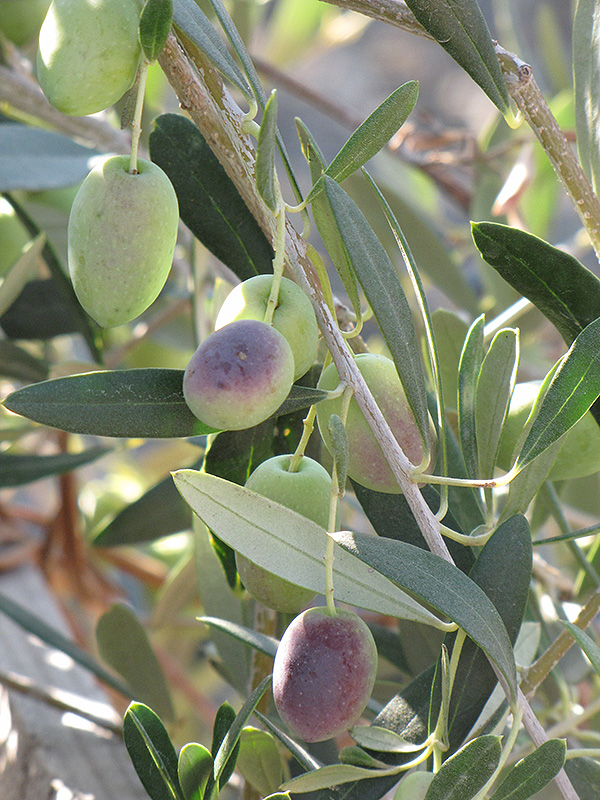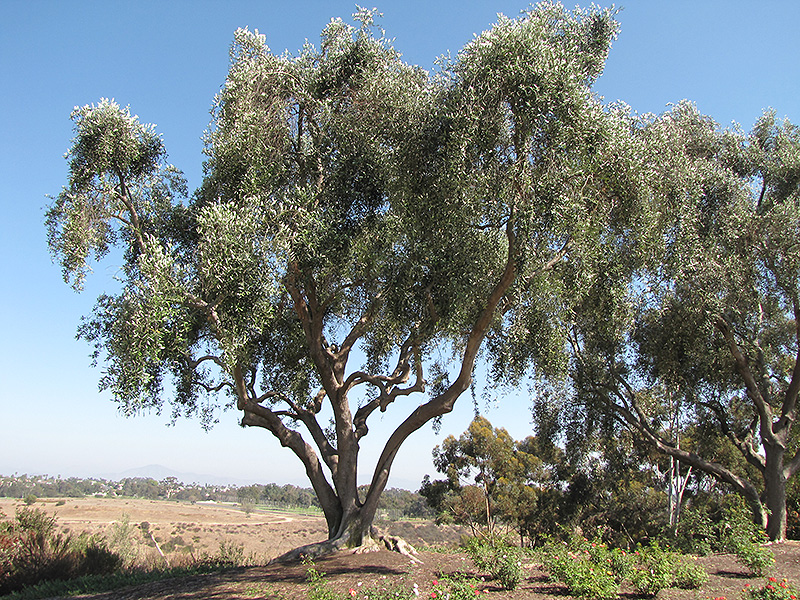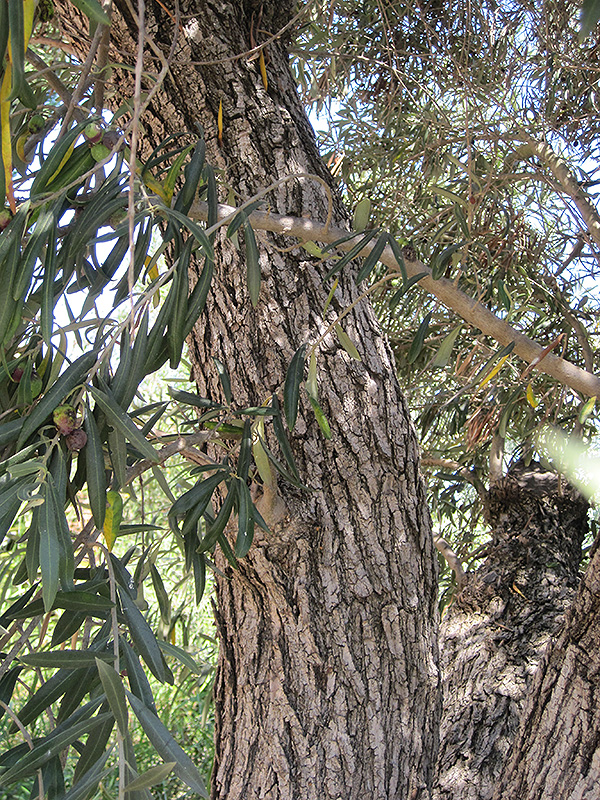Height: 30 feet Spread: 25 feet
Sunlight:
Hardiness Zone: 8a Other Names: European Olive Description: This tree has been cultivated for five thousand years for its fruit and oil; fragrant white flowers in summer give way to green drupes that ripen to black; can be grown as an ornamental as well; a beautiful accent tree or screen Ornamental Features Common Olive is bathed in stunning panicles of fragrant white flowers along the branches from late spring to early summer. The fruits are showy black drupes carried in abundance from mid summer to early fall. The fruit can be messy if allowed to drop on the lawn or walkways, and may require occasional clean-up. It has dark green evergreen foliage which emerges light green in spring. The glossy narrow leaves remain dark green throughout the winter. The smooth gray bark adds an interesting dimension to the landscape. This plant is primarily grown as an ornamental, but it's also valued for its edible qualities. The oval pungent fruit is most often used in the following ways: Landscape Attributes Common Olive is an evergreen tree with an upright spreading habit of growth. Its relatively fine texture sets it apart from other landscape plants with less refined foliage. This tree will require occasional maintenance and upkeep, and should not require much pruning, except when necessary, such as to remove dieback. It is a good choice for attracting birds and butterflies to your yard. It has no significant negative characteristics. Common Olive is recommended for the following landscape applications; Planting & Growing Common Olive will grow to be about 30 feet tall at maturity, with a spread of 25 feet. It has a low canopy with a typical clearance of 2 feet from the ground, and should not be planted underneath power lines. It grows at a slow rate, and under ideal conditions can be expected to live to a ripe old age of 300 years or more; think of this as a heritage tree for future generations! This tree should only be grown in full sunlight. It is very adaptable to both dry and moist locations, and should do just fine under average home landscape conditions. It is not particular as to soil type or pH. It is somewhat tolerant of urban pollution. This species is not originally from North America. Common Olive is a fine choice for the yard, but it is also a good selection for planting in outdoor pots and containers. Its large size and upright habit of growth lend it for use as a solitary accent, or in a composition surrounded by smaller plants around the base and those that spill over the edges. It is even sizeable enough that it can be grown alone in a suitable container. Note that when grown in a container, it may not perform exactly as indicated on the tag - this is to be expected. Also note that when growing plants in outdoor containers and baskets, they may require more frequent waterings than they would in the yard or garden.![]()
![]()
![]()
![]()
![]()
![]()
![]()
![]()
![]()
![]()
![]()
![]()
![]()
![]()
![]()
top of page
Louie's Nursery Menifee - Plant Finder
Characteristics
Applications
Features & Attributes
This tool is an online resource representing many of the varieties that we carry over the course of the season, and is intended for informational purposes only. Inventory varies seasonally, so we cannot guarantee that every plant will be in stock at all times - please contact the store directly for current availability. It does not include our entire selection of plants, so be sure to visit our store to see varieties that may not be represented on this list.
bottom of page


